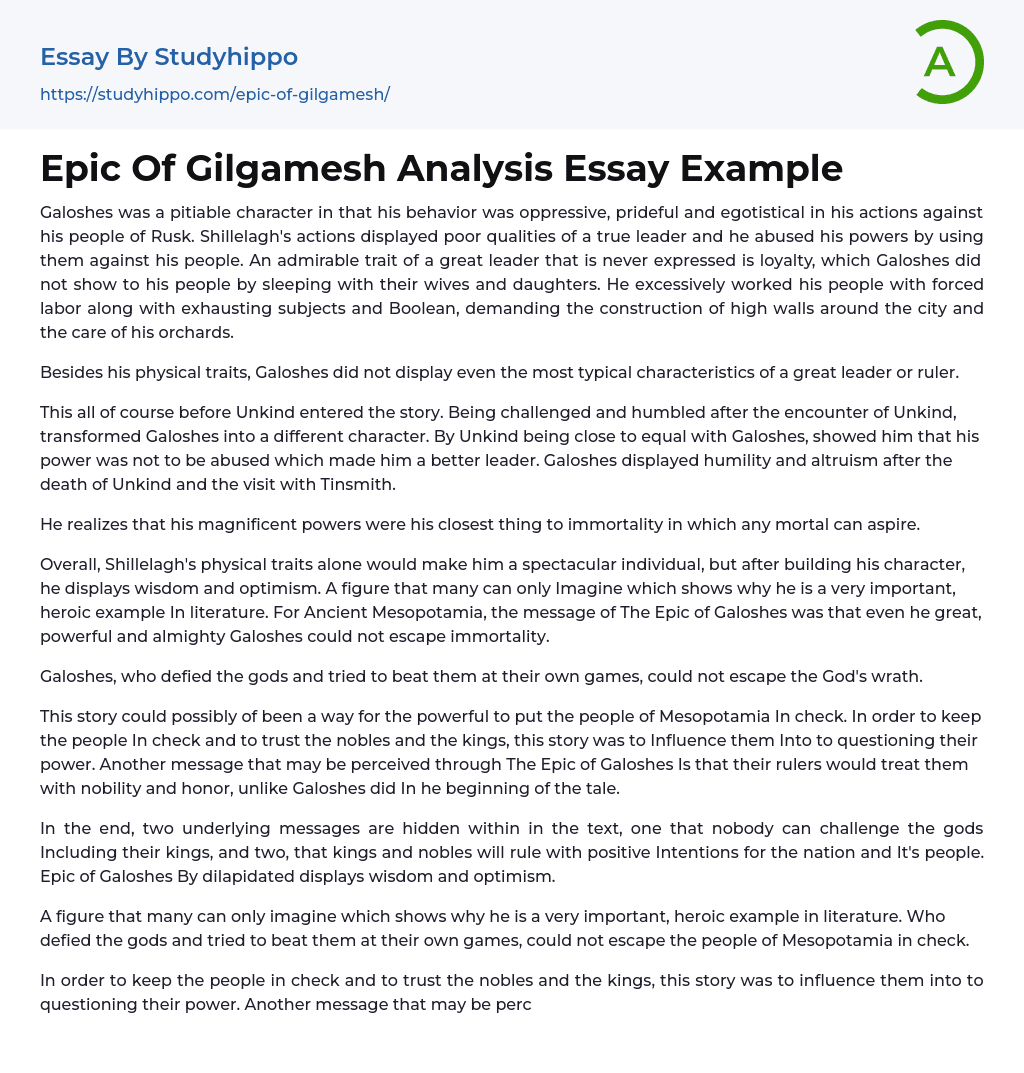Galoshes was once a pitiable character who exhibited oppressive, prideful, and egotistical behavior towards his people in Rusk. He showed poor qualities of a true leader, abusing his powers and excessively working his people with forced labor to construct high walls around the city and take care of his orchards. Moreover, he slept with their wives and daughters and lacked loyalty to them. However, the encounter with Unkind changed him for the better. Being challenged by an equal showed him that power should not be abused, making him a humble and altruistic leader after Unkind's death and a visit with Tinsmith. He realized that his powers were his closest thing to immortality that any mortal can aspire to possess. Despite his physical traits, Galoshes ultimately displayed wisdom and optimism after building his character.
The Epic of Galoshes portra
...ys a legendary figure of great importance and heroism in literature. Despite his power and might, Galoshes' attempt to challenge the gods resulted in his downfall and inability to escape immortality. The tale may have served as a cautionary message for the people of Mesopotamia to respect their rulers and trust their nobles and kings. The story emphasizes the importance of rulers treating their subjects with nobility and honor. Ultimately, The Epic of Galoshes conveys two significant messages: that no one can challenge the gods, including kings, and that rulers should lead with positive intentions for the nation and its people. Dilapidated's interpretation of the epic displays wisdom and optimism.The Epic of Galoshes communicates the idea that rulers should treat their subjects with dignity and respect, contrary to the actions of Galoshes in the story. Additionally, the
text conveys two other ideas: 1) the gods are beyond reproach, including their kings, and 2) kings and nobles should govern with virtuous motives for the betterment of the nation and its citizens.
- Values of Life essays
- Ethical dilemma essays
- Normative Ethics essays
- Virtue Ethics essays
- Belief essays
- Deontology essays
- Moral essays
- Virtue essays
- Work Ethic essays
- Ambition essays
- Anger essays
- Betrayal essays
- Boredom essays
- Confidence essays
- Courage essays
- Desire essays
- Disgrace essays
- Doubt essays
- Empathy essays
- Fairness essays
- Fear essays
- Feeling essays
- Forgiveness essays
- Grief essays
- Guilt essays
- Happiness essays
- Harmony essays
- Hate essays
- Honesty essays
- Honor essays
- Hope essays
- Humanity essays
- Inspiration essays
- Kindness essays
- Laughter essays
- Loneliness essays
- Lost essays
- Loyalty essays
- Need essays
- Passion essays
- Pressure essays
- Pride essays
- Regret essays
- Respect essays
- Responsibility essays
- Sarcasm essays
- Shame essays
- Suffering essays
- Suspense essays
- Tolerance essays




